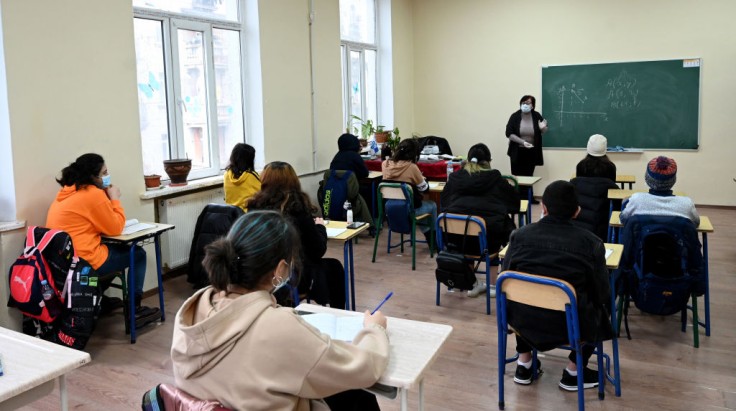
A group of retired educators based in Georgia is taking a strong stance against the Cobb County School District's endeavor to terminate the employment of a dedicated teacher, Katie Rinderle.
Rinderle faces the imminent threat of job loss following allegations of improperly introducing a book focused on gender identity to her fifth-grade students.
This case has sparked a heated and thought-provoking debate about the parameters of classroom teaching, teacher independence, and the integration of LGBTQ themes in the educational sphere.
Educational Veterans Rally Around Teacher's Right to Teach
A panel comprising three retired educators has united in solidarity to support Due West Elementary teacher Katie Rinderle, who finds herself confronting the possibility of job termination due to her choice to include "My Shadow is Purple," a book that sensitively explores gender identity topics, within her fifth-grade curriculum.
This group's collective opinion starkly contrasts with the Cobb County School District's stance, underscoring the importance of granting educators the autonomy to foster an all-encompassing and inclusive learning environment.
The case involving Katie Rinderle extends beyond its immediate impact; it is emblematic of the struggle to define the extent of school districts' influence over classroom content and the role of parents in shaping educational material.
Rinderle's decision to incorporate "My Shadow is Purple" as part of her instructional approach triggered concerns among certain parents, prompting the Cobb County School District to accuse her of breaching their guidelines pertaining to contentious subjects.
Against the backdrop of a broader conservative reaction to LGBTQ-themed content in educational settings, this case underscores the intricate challenges educators encounter as they navigate sensitive topics while preserving a well-rounded educational experience.
Pivotal Verdict Awaits Cobb County School Board
Katie Rinderle's professional destiny now hangs in the balance, subject to the judgment of the Cobb County School Board.
While the group of retired educators has rejected the district's recommendation to dismiss her from her position, the ultimate decision rests with the school board.
The imminent board meeting is poised to be a watershed moment, deciding whether the tribunal's decision is upheld, revised, or dismissed altogether.
This deliberation unfolds in the context of increased scrutiny surrounding educational standards and educators' roles in cultivating an inclusive and respectful learning atmosphere catering to students with diverse backgrounds.
Championing Inclusivity and Teacher Autonomy in Georgia's Educational Landscape
Katie Rinderle's case transcends its immediate implications-it encapsulates the intricate predicaments educators grapple with when addressing intricate subjects like gender identity in the classroom.
This scenario sparks a broader discourse about the responsibility of educational institutions to harmonize open dialogue with the acknowledgment of parental apprehensions.
As the spotlight shifts to Due West Elementary and the Cobb County School Board, the forthcoming decision could resonate beyond Georgia's borders, influencing the ongoing national conversation about LGBTQ education and the roles educators play.
In an era where discussions concerning gender identity and LGBTQ rights are integral aspects of societal discourse, the outcome of Katie Rinderle's case assumes relevance beyond her immediate circumstances.
As Georgia witnesses the interplay between educational autonomy and community values, the resolution reached by the Cobb County School Board will undoubtedly contribute to shaping the educational landscape of the state.
This is also seen to leave an indelible impact on the broader conversation concerning curriculum inclusivity and diversity across educational institutions nationwide.